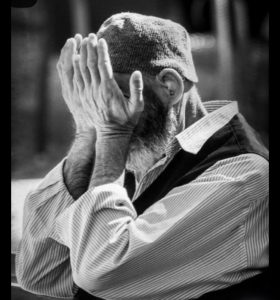THE KIND OF DU’A THAT DOESN’T NEED WORDS

Not every du’a is spoken. Sometimes, your silence says more than your tongue ever could.
Sometimes, the tears that fall in sujood carry meanings no language can hold.
Du’a is not always about eloquence or perfect phrasing. It’s about presence that quiet awareness that Allah is listening even when you can’t speak. There are moments when your heart aches too deeply to form sentences, yet you still feel the need to raise your hands. That trembling, that sigh, that pause they’re all du’a. They’re all you saying, “Ya Allah, You know.”
The Prophet ﷺ said, “Your Lord is shy and generous. He is shy when His servant raises his hands to Him to return them empty.” (Abu Dawud). Notice it doesn’t say you must raise your voice, only your hands. Even when you can’t express it, Allah sees the storm inside you. Your silence is not a lack of faith; it’s a language of surrender.
Some of the most powerful du’as in the Qur’an were made with few or no words. When Prophet Yunus عليه السلام was trapped in the belly of the whale, he didn’t explain his pain he simply said, “There is no god but You, glory be to You, indeed I was among the wrongdoers.” When Maryam عليه السلام was in labor, in unbearable pain and isolation, she didn’t ask for ease she only said, “I wish I had died before this.” And yet, Allah answered them both with mercy and relief.
There are days when all you can do is cry. Don’t rush to replace those tears with words. Let them fall because sometimes tears are the purest form of du’a. They are your soul speaking directly to the One who understands it best.
Allah doesn’t measure the strength of your du’a by how loud or long it is, but by how sincere your heart is while making it. So the next time you find yourself speechless in prayer, remember you’re not failing to make du’a. You’re already making one that only Allah can fully hear.

